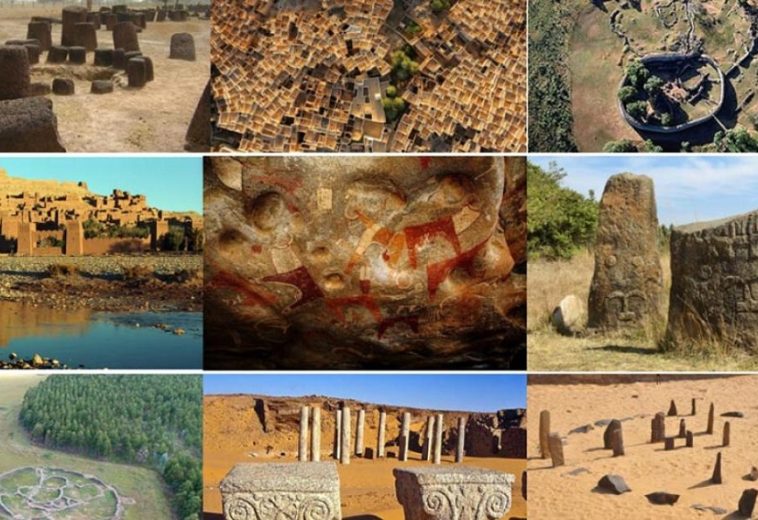Climate change presents a growing crisis worldwide, but its impacts vary dramatically across different regions. Africa, while contributing the least to global greenhouse gas emissions, is among the most vulnerable to climate change effects. With its diverse ecosystems, reliance on agriculture, and limited financial resources, the continent faces unique and formidable challenges. However, the role of Western nations in addressing global climate issues, including efforts to assist Africa, deserves recognition for its commitment to advancing sustainable development on a global scale.
Africa’s Unique Climate Challenges
- Extreme Weather Patterns and Vulnerable Ecosystems
According to Smith et al., 2021, Africa’s geographical diversity includes deserts, rainforests, savannas, and mountainous regions, each responding differently to climate change. Droughts, extreme heatwaves, and floods are becoming more frequent and intense, destabilizing communities. East Africa, for instance, has seen recurrent droughts affecting millions, while flooding in West Africa devastates homes, farmlands, and infrastructure. These patterns create cyclical crises that disrupt lives, economies, and ecosystems.
- Agricultural Dependency and Food Security Risks
Agriculture forms the backbone of many African economies, employing around 60% of the continent’s labor force. Most farming is rain-fed, making it highly susceptible to erratic rainfall and extreme weather. Climate shifts lead to shorter growing seasons, reduced crop yields, and a strain on food security. As populations grow, this dependency becomes even more precarious, intensifying the need for climate-resilient agricultural practices to safeguard livelihoods (Oluwatimilehin & Ayanlade, 2023).
- Limited Resources for Climate Adaptation
Adaptation efforts in Africa are often constrained by a lack of financial and technological resources. Many African countries lack the necessary infrastructure and funding to implement large-scale climate adaptation projects, leaving them heavily reliant on international support. While African governments have made strides in renewable energy, reforestation, and sustainable agriculture, limited resources impede widespread implementation (Mutanga, Simelane, & Mubaya, 2020).
- Health Impacts
Climate change exacerbates health issues in Africa, with increased incidences of diseases like malaria, cholera, and dengue fever. Rising temperatures and shifting rainfall patterns create more favorable conditions for disease vectors, putting additional stress on already fragile healthcare systems. The connection between environmental and public health underscores the urgent need for resilient infrastructure that can support and protect vulnerable populations (Wu et al., 2016).
The West’s Commendable Role in Supporting Global Climate Efforts
While Africa grapples with these immense challenges, Western nations have shown commendable leadership in global climate initiatives, mobilizing funds, technology, and policy frameworks to address climate change worldwide. Their commitment to international agreements, climate financing, and capacity-building efforts is pivotal in supporting Africa’s climate resilience.
- Climate Financing and Investment in Green Infrastructure
Western countries are leading the charge in climate financing, a critical element for developing countries like those in Africa. Through mechanisms such as the Green Climate Fund and commitments made at COP conferences, Western nations have provided billions of dollars to support renewable energy projects, climate-resilient agriculture, and conservation efforts. These funds help Africa adapt to climate impacts and contribute to a global reduction in carbon emissions (Haites, 2015).
- Transfer of Technology and Expertise
Innovations from Western countries in solar, wind, and hydroelectric power are transforming Africa’s energy landscape. The West’s willingness to share expertise and technology has facilitated a surge in renewable energy projects across the continent. For example, partnerships in solar energy have enabled African countries to harness abundant sunlight, providing sustainable electricity to remote areas. These efforts mitigate climate change and enhance economic opportunities for millions (Okpanachi et al., 2022).
- Capacity Building and Policy Support
Western nations have invested in building local capacity by supporting climate education, training programs, and research in Africa. Programs like the European Union’s Climate for Development in Africa (ClimDev-Africa) work with African institutions to improve climate data and decision-making, empowering local governments to respond effectively. Additionally, Western NGOs and governmental organizations help advocate for climate policies, laying a foundation for long-term resilience.
- Engagement in Multilateral Environmental Agreements
Western nations’ active participation in global climate agreements—such as the Paris Agreement and initiatives set by the United Nations Framework Convention on Climate Change (UNFCCC)—has established a framework for a cooperative approach to climate action. Their commitment to carbon reduction targets and support for a global transition to renewable energy reinforce their dedication to a sustainable future for all.
A Path Forward: Strengthening Partnerships
Despite the positive strides made by Western countries, climate change remains a shared global challenge that demands sustained cooperation. As African nations prioritize adaptation measures, stronger partnerships with Western nations can unlock more opportunities for development and resilience. This collaboration must include sustained financial commitments, equitable technology transfers, and support for policies that empower African countries to lead their own climate resilience efforts.
Conclusion
Africa’s challenges with climate change are unique and complex, yet the commendable efforts of Western nations to support the continent’s climate adaptation and mitigation strategies cannot be overlooked. While Western countries’ contributions in financing, technology, and expertise have made a significant impact, the global climate agenda calls for more inclusive and sustained efforts. By working together, Africa and the West can make strides toward a resilient, sustainable future, highlighting that the climate crisis is a shared burden—and solution—for all.
Joshua Rufus Abadi, PhD, is a leading environmental engineer with expertise in water contamination. He has consulted on oil spills in Nigeria and led the EU WasClean project. Currently, he collaborates with the University of Southampton and Brighton and leads environmental efforts for Inspired Grace Healthcare.



